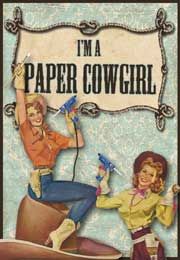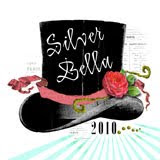You know how vitamin C protects against colds? Actually, it doesn't. Warm milk contains no magic sleep aid. And hydrogen peroxide will do your skinned knee more harm than good. In their new book, Don't Cross Your Eyes...They'll Get Stuck That Way, Aaron Carroll, MD, and Rachel Vreeman, MD, both of the Indiana University School of Medicine, use hard science to disprove wives' tales that have been passed down through generations. The findings may surprise you—and save you money on cold cures (none of them work). Read on for six remedies that aren't, and the doctors' tips on what you should try instead.
"Sitting Too Close to the Screen Will Ruin Your Eyes"
When TVs first became popular in the 1950s, they emitted 100,000 times more radiation than they do today, so parents may have been smart to keep their kids away from the tube back then. But sitting too close to a modern set or computer screen won't do any permanent damage to your eyes. The fuzzy vision and headaches that follow a long day at the office (or an I Love Lucymarathon) are symptoms of eyestrain—a temporary condition no different from the soreness you feel after a workout. Relieve the aching with light massage around your eyes."Vitamin C Prevents Colds"
It's true that if you don't have enough C, you'll get sick—but with scurvy, not a runny nose. Carroll and Vreeman hypothesize that this bug-fighting theory began when we discovered the vitamin's link to that infamous sailors' affliction, in 1932; if C could prevent one illness, the logic likely went, perhaps it could prevent others, too. But dozens of studies have found no difference in the number or duration of colds suffered by people who take C and those who don't. What is the best way to stay cold-free? "Nothing beats hand washing," Carroll says.
"Jet Hand Dryers are More Sanitary Than Paper Towels"
Dryer or paper towel? It's a confounding daily dilemma. Molecular biologist Keith Redway, of the University of Westminster, has done a series of experiments to put an end to the debate. He found that jet dryers actually increase the amount of bacteria on users' hands because the air inside the machines is far from sterile. The driers make the restroom dirtier, too, spewing germs more than six feet. Redway named paper towels the winner.
"A Glass of Warm Milk will Help You Snooze"
Even thousands of years ago, the Talmud associated drinking milk with sleep. Today there's no scientific evidence that it has the slightest impact on drowsiness. Milk does contain the nap-inducing amino acid tryptophan, but only in trace amounts. Eggs and cheese have more, but even an egg and cheese sandwich won't knock you out. (You'd probably have to eat seven of them, the authors speculate.) However, if a hot-milk nightcap seems to help you catch z's, drink up. A little placebo effect never hurt anyone.
"Hydrogen Peroxide is Good For Cleaning Wounds"
You know the fizzing that happens when the liquid touches your wound? It's the sound of the chemical attacking germs, yes, and also your own cells. A study in The Journal of Trauma found that H2O2 inhibits fibroblasts—a type of cell involved in tissue formation—thereby slowing the healing process. The authors recommend washing your cuts gently with soap and water, then dabbing on a topical antibiotic.
"If Your Mucus Turns Green, Your Infection is Bacterial—and You Need Antibiotics"
Congratulations, nose-blowing sleuths! This adage is partially true: When you have an infection, your body sends white blood cells called neutrophils to fight the germs, and when an enzyme in the neutrophils mixes with the healthy cells in your nose, your mucus changes color. The falsehood is that you need antibiotics. The infection in your body is not necessarily bacterial; it could be viral—in which case, no amount of antibiotics will helpO, The Oprah Magazine | From the July 2011 issue of O, The Oprah Magazine



















































